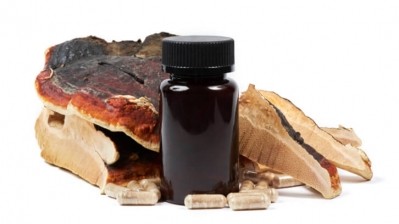Mushroom product labeling: Nammex files Citizen Petition requesting FDA actions
The petition is seeking FDA action on several issues:
1. Correct ambiguity in the dietary supplement labeling regulations to clarify that proper listing of ingredients from fungi on product labels includes identification of the part of the fungal organism from which the ingredient is derived.
2. Issue industry guidance regarding the proper labeling of fungal ingredients, including a Glossary of Mycological terms.
3. Increase regulatory enforcement to ensure foods and dietary supplements containing fungal ingredients are accurately labeled and take appropriate action against products labeled as “mushroom” when they do not contain mushrooms as claimed, but contain other fungal parts, such as mycelium, and fail to identify the presence of grain in product.
History
The US Food and Drug Administration first issued a labeling policy around mushroom products in 1976, which stated “Mushroom mycelium grown in acceptable media is regarded as suitable for food use. Any food in which mushroom mycelium is used should be labeled to state that fact. Labeling should not suggest or imply that the food contains mushrooms.
“For example, a soup in which mushroom mycelium is an ingredient should not be labeled or sold as "mushroom soup" since that name by long consumer understanding and usage is preempted by soup containing real mushrooms.”
The use of the term “mushroom mycelium” is problematic, said Jeff Chilton, founder and president of Nammex, because those are two distinct plant parts.
Speaking with NutraIngredients-USA via video, Chilton said: “The issue we’ve had in the mushroom category is that they haven’t really recognized the plant parts very well. Lots of companies out there are not putting the correct plant parts on their label. Rather than just say, ‘we’ve got mycelium in our product’, you can say, ‘oh, it’s mushroom’. That has been very confusing. The FDA has not stepped in despite this policy. This issue just doesn’t seem to want to go away.”
Nammex and Chilton have been advocating for full transparency in product labeling for many years, and urging companies in the industry to identify ingredients from fungi according to the part of the fungal organism from which they are derived.
The American Herbal Products Association stepped in in 2017 with a guidance policy on the Labeling of Dietary Supplements Containing Fungi Dietary Ingredients (effective 2019).
Holly Bayne from the Law Office of Bayne & Associates & Nammex’s regulatory counsel commended AHPA for all they do for the herbal products. “I think AHPA’s guidance policies were a good start, but I don’t think they went far enough to address the mislabeling problem with [fungal] dietary supplements, in part because the AHPA guidelines allow use of the term ‘mushroom mycelium’ and it’s not clear to me if they picked up on the terminology used in FDA’s guidance document.”
Citizen Petition
“Given the explosive growth the mushroom category is undergoing and entry of new companies marketing products with fungal ingredients that may not be aware of the regulatory requirements, it made sense to undertake this action now,” said Chilton.
“We hope to raise awareness of the mislabeling problem that exists today in the US and obtain FDA regulatory guidance on the labeling of mushrooms and other fungal ingredients to ensure truth-in-labeling. When consumers buy a product labeled as ‘mushroom’, they should feel confident that they are getting a genuine mushroom product.”
“As the petition has made clear, remedial action from FDA is warranted, including revisions to the Agency’s compliance policies to ensure foods and dietary supplements containing fungal ingredients are accurately labeled and not misbranded. We look forward to engaging with FDA on this important issue,” said Chilton.
The Agency has 180 days to respond to the petition.
A copy of the full petition and supporting documents, plus the link to add comments, can be found HERE.
Watch the video above for more from Jeff Chilton and Holly Bayne.
















